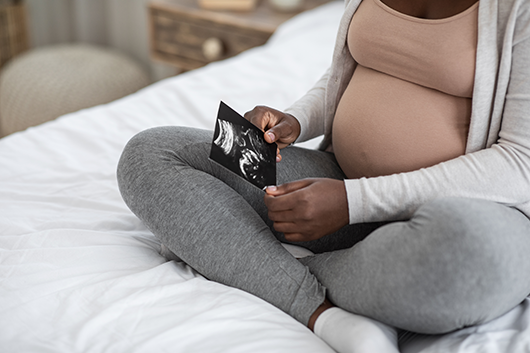 Recently, Governor Eric J. Holcomb proclaimed January 23 as Maternal Health Awareness Day in Indiana. The declaration is part of a national effort designed to remember the women who have lost their lives to childbirth and focus on efforts to ensure that Indiana moms are able to have safe and healthy deliveries.
Recently, Governor Eric J. Holcomb proclaimed January 23 as Maternal Health Awareness Day in Indiana. The declaration is part of a national effort designed to remember the women who have lost their lives to childbirth and focus on efforts to ensure that Indiana moms are able to have safe and healthy deliveries.Every day, two women die in the United States following childbirth, and an additional 1,000 women are affected each week by severe complications during delivery. In Indiana, 123 women suffered pregnancy-associated deaths in 2018 and 2019.
Maternal mortality can be an indicator of the overall health of a community or state. In response to the increasing recognition of maternal mortality rates in the United States, Maternal Mortality Review Committees (MMRC) are important. These groups identify and examine pregnancy-associated deaths to understand their causes and contributing factors, and ultimately put forth recommendations for preventing them in the future.
Indiana began developing its MMRC in 2017. Legislation mandating its formalization took effect in July 2018, and Indiana State Health Commissioner Dr. Kris Box appointed members, including the Indiana Hospital Association (IHA), who began reviewing all pregnancy-associated deaths in the fall of 2018. This multi-disciplinary committee has worked tirelessly to review all pregnancy-associated deaths that occurred in 2018 to better understand their causes and how they can be prevented in the future.
According to the Committee's 2020 Annual Report which reviews 2018 death findings, 86% of Indiana pregnancy-associated deaths occurred postpartum, including 37% after six weeks. Substance use disorder was the most common contributing factor to maternal deaths, likely contributing to over half of all pregnancy-associated deaths in 2018. Accidental overdose was overwhelmingly the leading cause of death, accounting for 36.5% of all pregnancy-associated deaths.
Hospitals large and small across Indiana are partnering with their communities and providers to ensure safe quality care for all mothers. They are voluntarily participating in quality improvement efforts to ensure excellence in evidence-based practices through the Indiana Perinatal Quality Improvement Collaborative. IHA partners with the Indiana Department of Health (IDOH) to lead this collaboration.
Brittany Waggoner is an RN and serves as the Maternal and Infant Quality Improvement Advisor for IHA. She knows firsthand the effects overall health can have on maternal mortality rates in the Hoosier state. Waggoner said when it comes to keeping mothers healthy, a strong support system, including hospitals, is crucial.
“Birthing hospitals in Indiana are dedicated to ensuring that safe, high-quality care is provided during every encounter," Waggoner said. “Their passion for safety, quality, and inequities in health care go beyond hospital walls. Their passion and willingness to partner with the community are needed to improve the entire maternity care system and outcomes for women and infants."
All of Indiana's delivering facilities are required to be certified as Level I, Level II, Level III, or Level IV, based on the services they offer to ensure safe and reliable care. Hospitals are dedicated to being equipped and prepared to stabilize and transfer maternal and neonatal patients to the level of care appropriate to their medical condition. While early in the process, IHA is beginning to have the ability to provide hospitals with access to near real-time benchmarking data. These consist of hospital performance metrics and quality improvement insights.
IHA is proud to lead the way in celebrating hospitals' efforts. In 2020, IHA launched its first annual INspire Recognition Program where hospital award recipients earn either an INspire Hospital of Distinction or a Category of Excellence recognition based on six key areas of infant safe sleep, breastfeeding, tobacco prevention and cessation, perinatal substance use, and AIM Patient Safety Bundles: Obstetric Hemorrhage and Maternal Hypertension. To see the latest hospital INspire recognitions, click here.
Waggoner said the pandemic has affected all parts of health care, including birthing centers. She said hospitals have had to learn how to navigate COVID-19, but says the obstacles haven't lowered standards in Hoosier birthing hospitals.
“Birthing hospital engagement in quality improvement efforts have not wavered during the pandemic," Waggoner said. “Their innovation and desire to continue to keep our Indiana moms and babies safe is stronger now than ever."
